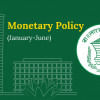Target job creation, reining in inflation in new budget
The government should prioritise job creation and inflation control in the budget for the next fiscal year in a bid to help the marginalised people survive amid higher prices of essentials, said the Citizen's Platform for SDGs, Bangladesh, yesterday.
"The upcoming budget is more important to people as they are facing challenges from the price hike of commodities," said Debapriya Bhattacharya, convener of the platform, at a virtual dialogue on the expectation of the mass people from the upcoming budget.
Finance Minister AHM Mustafa Kamal is set to unveil a Tk 677,864 crore national budget for 2022-23 in June, up 12 per cent from the budget in the outgoing fiscal year.
The calls for protecting the marginalised people and the lower-income groups have grown as inflation has escalated in Bangladesh owing to the fallout of the Russia-Ukraine War and the dragging coronavirus pandemic, both of which have disrupted global supply chains and sent commodities prices higher.
"The budget should not be an ordinary one in an extraordinary period," said Bhattacharya, also a distinguished fellow of the Centre for Policy Dialogue.
Direct and indirect unemployment has risen and the price level has gone up since the outbreak of Covid-19.
"The main priority of the upcoming budget should be creating jobs instead of making efforts to achieve the GDP growth target," Bhattacharya said.
"Only uttering words is not sufficient. A clear plan should be presented in the budget to give an outline on the number of jobs to be created in both public and private sectors."
The budget should project the number of people who will go abroad in search of jobs and the number of people who will turn to entrepreneurship, creating jobs for themselves and for others.
According to the economist, another target should be reducing the prices of essentials.
"The general public and the lower-middle-income groups are in a devastating situation. Their earnings have not risen in line with the pace of the price level."
Inflation jumped to 6.17 per cent in February, the highest in 16 months, driven by soaring costs of foods, further eroding the purchasing capacity of consumers.
Bhattacharya called for widening the open market sale operation of the Trading Corporation of Bangladesh and raising allocation under social safety net programmes and direct assistance.
The budget should be inclusive so that marginalised people can survive and find a way out of the current situation, he added.
Transgender people always live in a tight situation since they can't live with their families, so they deserve an incentive, said Robaet Ferdous, a professor of the mass communication and journalism department at the University of Dhaka.
The government gave recognition to them in 2011. They need specialised SME loans so that they can start small businesses, he said.
Prof Ferdous said house owners don't rent out to transgender people normally, so separate homes are necessary for them.
"The government should allocate funds in this regard," he said, adding that if any entrepreneur employs transgender people they should be incentivised.
The platform, which comprises more than 100 non-state actors and their networks and associates, has formulated a paper, which will be submitted to the government, where the voices of the marginalised people have been included.
It proposed raising the education budget from 2 per cent of the gross domestic product to at least 4 per cent and allocating subsidies to the educational institutions to help them buy smartphones, tabs and laptops for students and digitalise the education system.
The government should set aside more funds to the ethnic minority and Dalits through allocation in the areas of education, health, economic development and social protection schemes, it said.
The number of beneficiaries under the coverage of the government's stipend programmes for the children with disabilities should be tripled in the next budget and introduce separate stipends for the students with disabilities studying at technical education institutions.
The old-age allowance should be increased to Tk 1,000 per month and specific allocation be made to increase the health benefits for the elderly people, the paper said.
It called for introducing dedicated programmes for skills development for transgender people and their job placements.
Tony Michael Gomes, director of the World Vision Bangladesh, said children and their learning process were affected during the pandemic. So, the government should focus on it.
The possibility of differently able people getting budgetary allocation in the next fiscal year is slim, said Khandaker Jahurul Alam, executive director of the Centre for Services and Information on Disability.
"We are tired of saying that the responsibilities of the disabled don't lie with the social welfare ministry alone. But no other ministries are asking for any allocation for the disabled," he said, adding that the government should allocate budgets to make the country's infrastructure disabled-friendly.
Biplob Chandra Rishi, representing Dalits, said general people are getting jobs as cleaners while people in the Dalit community are employed on a contractual basis.
"Some Dalit people are involved in businesses selling bamboo products, but they have to rely on the loans carrying higher interest rates. The government can work in this area."
Abdul Aziz, a farmer from Patuakhali, said growers buy fertilizers and seeds at higher costs but they don't get the proper prices.
"The government should ensure fair prices for the farm produce," he said, adding a proper planning and maintenance programme should be undertaken to stop saline water from entering the main farmland.
Ahasan Habib Bulbul, general secretary of the Socialist Labour Front, recommended a rationing system for the transport sector workers as they too fell into troubles during the pandemic.
"The government can train them to enhance their skills."
Many women lost jobs during the pandemic and returned to the villages, so the government should think about how they can be incentivised, said Shima Moslem, joint general secretary of the Bangladesh Mahila Parishad.
"The government can extend loans to them and incentivise them through subsidies."
She said women play a vital role in the garment industry, the main foreign currency earner in Bangladesh. However, they are in a tight situation due to technology up-gradation.
"The government should roll out a training programme so that they can survive in the era of digitalisation."

 For all latest news, follow The Daily Star's Google News channel.
For all latest news, follow The Daily Star's Google News channel. 








Comments